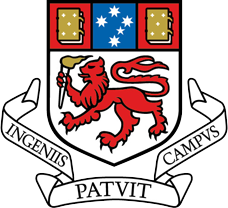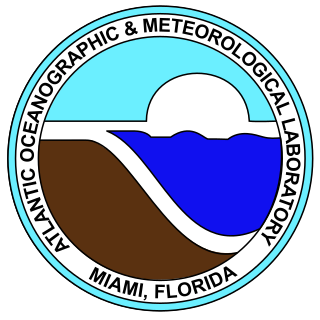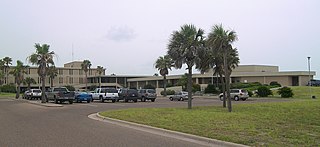
The University of Tasmania (UTAS) is a public research university, primarily located in Tasmania, Australia. Founded in 1890, it is Australia's fourth oldest university. Christ College, one of the university's residential colleges, first proposed in 1840 in Lieutenant-Governor Sir John Franklin's Legislative Council, was modelled on the Oxford and Cambridge colleges, and was founded in 1846, making it the oldest tertiary institution in the country. The university is a sandstone university, a member of the international Association of Commonwealth Universities, and the Association of Southeast Asian Institutions of Higher Learning.

The University of Chittagong is a public research university located in Hathazari, Chattogram, Bangladesh. It was established on 18 November 1966. It is one of the oldest universities in Bangladesh. Its 2,312.32 acres (935.76 ha) campus is the largest among universities in Bangladesh. It is one of the four autonomous by the act universities of Bangladesh.

The Atlantic Oceanographic and Meteorological Laboratory (AOML), a federal research laboratory, is part of the National Oceanic and Atmospheric Administration's (NOAA) Office of Oceanic and Atmospheric Research (OAR), located in Miami in the United States. AOML's research spans tropical cyclone and hurricanes, coastal ecosystems, oceans and human health, climate studies, global carbon systems, and ocean observations. It is one of seven NOAA Research Laboratories (RLs).
The Earth Institute is a research institute at Columbia University created in 1995 for addressing complex issues facing the planet and its inhabitants, with a focus on sustainable development. With an interdisciplinary approach, this includes research in climate change, geology, global health, economics, management, agriculture, ecosystems, urbanization, energy, hazards, and water. The Earth Institute's activities are guided by the idea that science and technological tools that already exist could be applied to greatly improve conditions for the world's poor, while preserving the natural systems that support life on Earth.

Harbor Branch Oceanographic Institute is a non-profit oceanographic institution operated by Florida Atlantic University in Fort Pierce, Florida, United States. Founded in 1971 as non-profit research organization, the institution was transferred to FAU in 2007.
The Harte Research Institute for Gulf of Mexico Studies (HRI) at Texas A&M University-Corpus Christi is the only marine research institute dedicated solely to advancing the long-term sustainable use and conservation of the world's ninth-largest body of water. Established in 2001, HRI integrates outstanding scientific research with public policy to provide international leadership in generating and disseminating knowledge about the Gulf of Mexico ecosystem and its critical role in the economies of the North American region.
Aquatic science is the study of the various bodies of water that make up our planet including oceanic and freshwater environments. Aquatic scientists study the movement of water, the chemistry of water, aquatic organisms, aquatic ecosystems, the movement of materials in and out of aquatic ecosystems, and the use of water by humans, among other things. Aquatic scientists examine current processes as well as historic processes, and the water bodies that they study can range from tiny areas measured in millimeters to full oceans. Moreover, aquatic scientists work in Interdisciplinary groups. For example, a physical oceanographer might work with a biological oceanographer to understand how physical processes, such as tropical cyclones or rip currents, affect organisms in the Atlantic Ocean. Chemists and biologists, on the other hand, might work together to see how the chemical makeup of a certain body of water affects the plants and animals that reside there. Aquatic scientists can work to tackle global problems such as global oceanic change and local problems, such as trying to understand why a drinking water supply in a certain area is polluted.

The Virginia Institute of Marine Science (VIMS) is one of the largest marine research and education centers in the United States. Founded in 1940, VIMS is unique among marine science institutions in its legal mandate to provide research, education, and advisory services to government, citizens, and industry. Funding for VIMS comes from the Commonwealth of Virginia, grants and contracts from federal and state agencies, and private giving. The School of Marine Science (SMS) at VIMS is the graduate school in marine science for the College of William & Mary. VIMS offers M.S., Ph.D., and professional M.A. degrees in marine science. The school has 52 faculty members, an enrollment of 80-100 students, and includes 4 academic departments. VIMS' main campus is located in Gloucester Point, Virginia.
Defying Ocean's End (DOE) is a global agenda for action in marine conservation compiled in a 2004 Island Press book. It is also the title of a 2003 Los Cabos (Mexico) conference, where the agenda was formulated.

William Mitsch is an ecosystem ecologist and ecological engineer who was co-laureate of the 2004 Stockholm Water Prize in August 2004 as a result of a career in wetland ecology and restoration, ecological engineering, and ecological modelling.
SECORE is an international non-profit organization focused on coral reef conservation. The group has over sixty supporters in North America, Europe and Japan, and comprises public aquariums, institutes, and universities. Founded in 2001 at the Rotterdam Zoo in the Netherlands, the organization has been developing methods of captive coral reproduction and preservation, citing studies that have predicted coral reefs could be extinct within decades due to climate change.

The Institute for Marine and Antarctic Studies (IMAS) is a teaching and research institute of the University of Tasmania in Hobart, Tasmania. IMAS was established in 2010, building upon the university's partnership with CSIRO Oceans and Atmosphere and the Australian Antarctic Division in cooperative Antarctic research and Southern Ocean research.

The GEOMAR - Helmholtz Centre for Ocean Research Kiel (GEOMAR), formerly known as the Leibniz Institute of Marine Sciences, is a research institute in Kiel, Germany. It was formed in 2004 by merging the Institute for Marine Science with the Research Center for Marine Geosciences (GEOMAR) and is co-funded by both federal and provincial governments. It was a member of the Leibniz Association until 2012 and is coordinator of the FishBase Consortium. Since 2012 it is member of the Helmholtz Association and named GEOMAR - Helmholtz Centre for Ocean Research Kiel. The institute operates worldwide in all ocean basins, specialising in climate dynamics, marine ecology and biogeochemistry, and ocean floor dynamics and circulation. GEOMAR offers degree courses in affiliation with the University of Kiel, and operates the Kiel Aquarium and the Lithothek, a repository for split sediment core samples.
Bigelow Laboratory for Ocean Sciences, founded in 1974, is an independent, non-profit oceanography research institute. The Laboratory's research ranges from microbial oceanography to the large-scale biogeochemical processes that drive ocean ecosystems and health of the entire planet.
Nancy Nash Rabalais is an American marine ecologist. She researches dead zones in the marine environment and is an expert in eutrophication and nutrient pollution.
Deborah K. Steinberg is an American Antarctic biological oceanographer who works on interdisciplinary oceanographic research programs. Steinberg's research focuses on the role that zooplankton play in marine food webs and the global carbon cycle, and how these small drifting animals are affected by changes in climate.

The University of Texas Marine Science Institute (UTMSI) is part of the University of Texas at Austin but is located in Port Aransas, Texas. Founded in 1941, UTMSI has 15 faculty members and 21 students. Notable alumni include Nancy Rabalais. Facilities on the main campus include wet and dry lab space, a wildlife rehabilitation "keep", dormitories, boat storage, and offices. UTMSI has received funding appropriated by the Texas State Legislature since 1971. In 2021, these funds totaled approximately $4.5 million.

Catherine Ellen Lovelock is an Australian marine ecologist, whose research focuses on coastal ecosystems. She is a professor in the School of Biological Science at the University of Queensland and 2020 Georgina Sweet Australian Laureate Fellow.
Janice Lough is a climate scientist at the Australian Institute of Marine Science (AIMS) at James Cook University, researching climate change, and impacts of temperature and elevated CO2 on coral reefs. She was elected to the Australian Academy of Science in 2022 for her research in climate change, coral reefs, and developing high resolution environmental and growth histories from corals, particularly the Great Barrier Reef.









